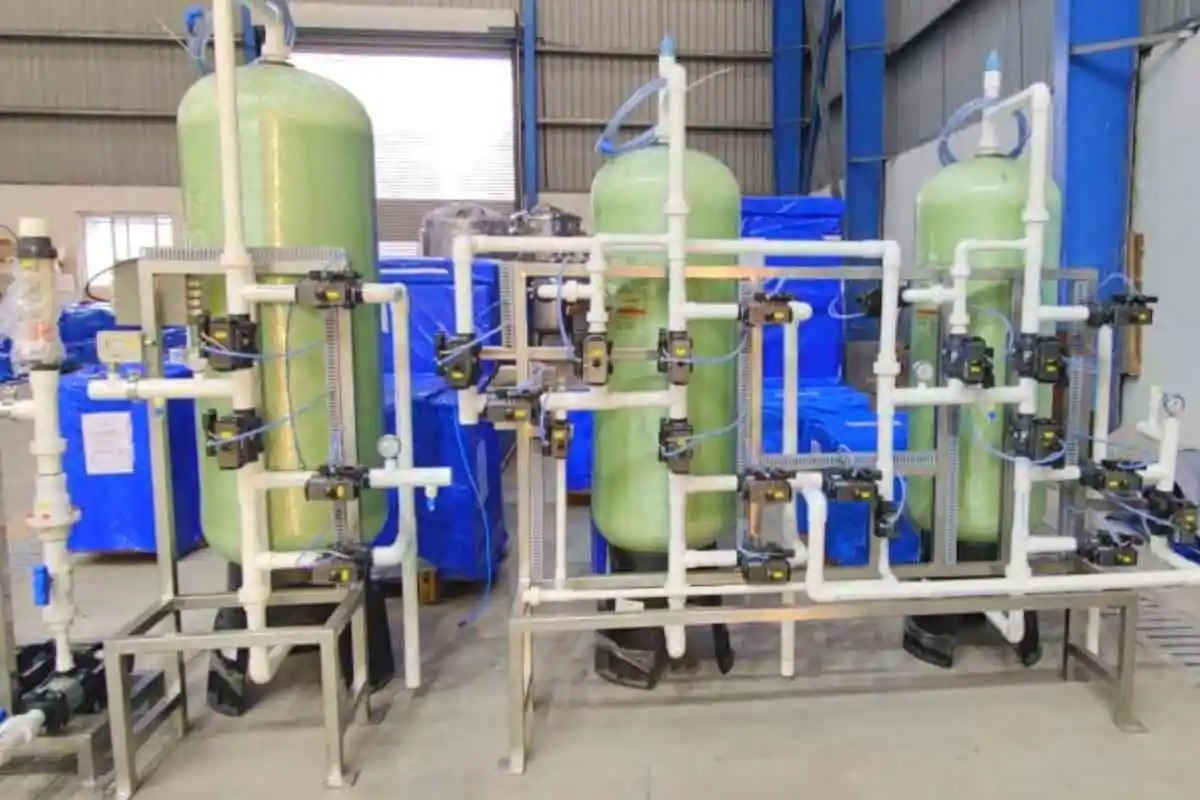+91 8080978282, +91 22 47489055
Industrial RO Plant
Water Softner

When water is hard, it can clog pipes, damage boilers, heat exchangers, and many other devices. Water softener system can prevent these negative effects. Hard water causes a higher risk of lime scale deposits in industrial, commercial and household water systems.
Due to this lime scale build-up, pipes are blocked and the efficiency of hot boilers and tanks is reduced. This increases the cost of domestic water heating by about fifteen to twenty percent.
Another negative effect of lime scale is that it has damaging effects on commercial machinery, such as laundry machines. Water softening using a water softener system expands the life-span of each machine. It also contributes to the improved working, and longer lifespan of solar heating systems, air conditioning units and many other water-reliant systems.
What Do Water Softeners Do?
Industrial water softener system are specific ion exchangers that are designed to remove ions which are positively charged.
Softeners mainly remove calcium (Ca2+) and magnesium (Mg2+) ions. Calcium and magnesium are often referred to as hardness minerals. Softeners are sometimes even applied to remove iron from water.
The softening devices are able to remove up to five milligrams per liter (5 mg/L) of dissolved iron and can operate automatic, semi-automatic, or manual. Each type is rated on the amount of hardness it can remove before regeneration is necessary. Commercial water softeners collect hardness minerals within its conditioning tank and from time to time flushes them away to drain.
When an ion exchanger is applied for water softening, it will replace the calcium and magnesium ions in the water with other ions, for instance sodium or potassium. The exchanger ions are added to the ion exchanger reservoir as sodium and potassium salts (NaCl and KCl).
How Long Does A Water Softener Last?
A good water softening equipment supplier will deliver a system that can last 15 years. Water softeners that were supplied in the early 2000's may still work, and many need little maintenance, besides filling them with salt occasionally.
While water softeners do not last forever, they are designed to have long-lasting life value.†Krupashindhu Consulting Engineers water softener systems can work well for up to 20 years, which makes our systems some of the most durable designs on the market.
How Often Should One Add Salt To A Softener?
Salt is usually added to the reservoir during regeneration of the softener. The more often a softener is regenerated, the more often salt needs to be added. Usually water softeners are checked twice a month and to guarantee a satisfactory production of soft water, the salt level should be kept at least half-full at all times.
Additional Benefits Of Water Softener Systems
A water softener supplier such as Krupashindhu Consulting Engineers manufactures quality softening systems that ensure softer and cleaner clothes by removing the minerals that cause hardness, such as calcium and magnesium. The advantages of these systems include:
- Longer life span of appliances such as dishwasher, washing machine, and water heaters.
- Immense cost-savings with less need for commercial chemical and cleaning products
- Less water spotting
- Reduction of maintenance costs
- Cutback on water and energy consumption
APPLICATION FOR WATER SOFTENER SYSTEMS:
- Food & Beverage
- Spot Free Car Wash
- Restaurant Water Treatment
- Hospital Water Treatment
- Laundry
